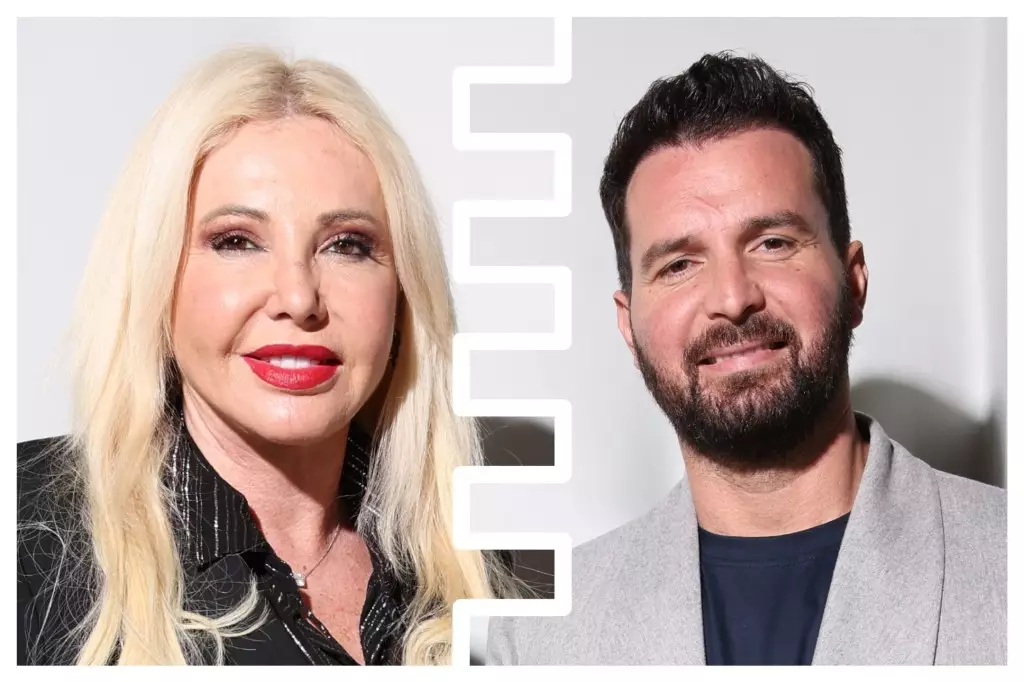The tumultuous relationship between Monika Bacardi and Andrea Iervolino, two influential figures in the entertainment industry, has recently taken a dramatic turn as their joint company, Iervolino and Lady Bacardi Entertainment (ILBE), finds itself at the center of a controversial legal battle. This conflict, which has evolved over the years, reached a pivotal moment during a shareholders meeting that occurred following Iervolino’s decision to establish his independent venture, The Andrea Iervolino Company (TAIC). The fallout from this partnership not only raises questions about the integrity of collaborative endeavors in Hollywood but also sheds light on the underlying tensions that can arise in high-stakes business relationships.
The recent shareholders meeting held by ILBE marked a watershed moment, addressing several contentious issues that have surfaced between the co-founders. Among the key decisions was the resolution to initiate legal proceedings against Iervolino, effectively demonstrating the extent of the rift between the two parties. The engagement of the prominent Italian law firm Pedersoli Gattai to oversee preliminary investigative activities signals the gravity of the allegations and underscores that both Bacardi and Iervolino have vested interests that could impact their professional futures.
In an environment where brand reputation is paramount, the decision to change the company’s name to Lady Bacardi Media S.p.A. (LBM S.p.A.) showcases a bold step towards rebranding, perhaps as a strategy to distance the entity from the controversies embroiling its founders. This renaming signifies not only a shift in identity but also reflects a desire to reclaim control over the narrative that has been tainted by the fallout.
As the legal framework unfolds, Bacardi has publicly accused Iervolino of a potential conflict of interest stemming from his attempts to merge ILBE with his privately-held social media platform, Tatatu, which he dominates with a 96% stake. This accusation highlights the blurred lines of professional integrity that can occur when personal ambitions intertwine with shared business interests. Bacardi’s claims emphasize her concerns over Iervolino’s alleged maneuvering to pivot ILBE’s resources towards projects linked to Tatatu, thereby portraying the actions as unfair competition that undermines the very foundation of their business partnership.
In response, Iervolino has vehemently denied these allegations, branding them as unfounded and laden with negative sentiment. His assertion—that the claims are mere gossip rooted in personal grievances—intensifies the drama surrounding the dispute. As he asserts legal actions against Bacardi’s accusations, the battle of narratives continues, revealing the often messy underbelly of elite business alliances in the entertainment industry.
The ramifications of this dispute extend beyond their personal grievances and will likely reverberate across broader industry circles. The decision to launch independent ventures following a business split can often signal not just a desire for autonomy but also a quest for redefining one’s brand and vision. Iervolino’s offensive stance, coupled with Bacardi’s defensive posture, raises critical questions about how such splits can alter the landscape of collaborative projects—and whether they can rise above petty squabbles to showcase genuine artistry in future endeavors.
Furthermore, the newly appointed board of directors at ILBE suggests a desire to pivot towards stability and strategic management amidst the turmoil. With industry veterans now helming the ship, there exists a possibility for ILBE to evolve post-Iervolino, capitalizing on fresh perspectives to cultivate its narrative in the competitive entertainment sector. In parallel, Iervolino’s focus on ensuring that his new company, TAIC, diverges from past entanglements may present an ideological as well as a practical challenge, necessitating clarity and integrity in securing future projects.
While the Bacardi-Iervolino dispute may initially seem confined to personal vendettas and legal skirmishes, it unveils a microcosm of larger issues at play in the realm of entertainment management and collaborations. The complex interplay of egos, ambitions, and reputations is an omnipresent theme in the realm of Hollywood partnerships. As both parties navigate their respective journeys—one through legal battles and the other through rebranding efforts—the industry at large awaits a resolution that will redefine not only their legacies but also the direction of their future projects. The lessons gleaned from this discord serve as a reminder of the precarious nature of collaboration in the fast-paced entertainment world, where today’s allies can rapidly become tomorrow’s adversaries.
